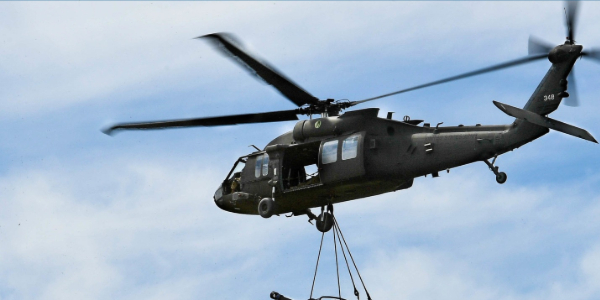The Duty of Airplane in Forming International Transportation and Profession Characteristics
Via the establishment of durable air cargo networks, companies can currently browse international markets with exceptional speed and agility, thus redefining supply chain methods. As we explore the complex impacts of airplane on global trade, it is necessary to think about just how these elements will form the future landscape of aeronautics and its function in the economic situation.

Advancement of Air Transport
The development of air transportation has been marked by significant technological developments and developments that have actually changed the method individuals and items move throughout the globe. From the Wright brothers' very first powered trip in 1903 to the development of supersonic jets, each milestone has highlighted the ruthless quest of effectiveness and speed in air traveling.
The last part of the 20th century experienced the development of business air travel as a feasible mode of transportation, characterized by the introduction of jet engines, which changed air traveling by drastically decreasing trip times. Furthermore, advancements in navigation and communication innovations have actually improved functional performance and safety, enabling even more complex flight routes and schedules. The increase of air cargo in parallel with passenger services has further underscored the adaptability of aeronautics. As we aim to the future, emerging innovations such as autonomous and electric airplane assurance to redefine the air transportation landscape, guaranteeing continued advancement and adjustment to global demands.
Influence on Global Profession
Air transportation has greatly reshaped international profession by facilitating the swift movement of items throughout vast ranges. This expedited logistics capability permits organizations to react swiftly to market needs, consequently enhancing supply chain effectiveness. The ability to transport subject to spoiling goods, high-value items, and time-sensitive items has opened new markets and possibilities for numerous industries, substantially affecting profession patterns.
Furthermore, the development of air freight networks has actually promoted globalization, making it possible for business to source products and items from different parts of the world perfectly. This interconnectedness reduces preparations and expenses, allowing services to continue to be affordable in a progressively global marketplace. Additionally, air transport plays a crucial role in shopping, where customer expectations for fast delivery have actually driven a rise sought after for air cargo services.
The effect of aircraft on global trade reaches the development of tactical profession paths, linking regions and assisting in global partnerships. Countries that buy air transportation infrastructure often experience boosted financial development and boosted international direct financial investment. Overall, the evolution of air transportation has not only changed the logistics landscape however has additionally become a vital part in the dynamics of worldwide profession.

Economic Benefits of Aeronautics
A durable aviation sector generates significant economic benefits, adding to job creation, tourist, and general financial development - uh 60. The aeronautics sector supports millions of tasks worldwide, varying from straight employment in airline companies and airports to indirect functions in markets such as friendliness, transportation, and logistics. According to sector records, for every single job in the aeronautics industry, around 3.5 extra tasks are developed in the wider economic situation
Tourism is a critical component of the economic advantages originated from aviation. Air travel facilitates worldwide tourism, permitting tourists to check out varied destinations, which consequently promotes neighborhood economic situations. Nations that invest in their aviation facilities usually experience enhanced tourist arrivals, bring about greater costs on services such as resorts, attractions, and dining establishments.

Moreover, aviation improves international connectivity, allowing organizations to access new markets and sources successfully. As an outcome, industries such as shopping and manufacturing advantage greatly from reliable air transport, additional driving financial development.
Challenges Dealing With the Aviation Market
Browsing an intricate landscape of regulatory, ecological, and economic challenges, the aviation industry faces significant obstacles that intimidate its sustainability and growth. Rules bordering safety and security and safety and security are continuously advancing, necessitating recurring conformity and adaptation from manufacturers and airline companies (uh 60). This can bring about raised functional prices and source allowance that detracts from development and expansion efforts
Furthermore, environmental problems have come to be paramount, with growing analysis over carbon exhausts and noise pollution. The industry is under stress to embrace greener innovations and techniques, which commonly require considerable financial investment in r & d. Balancing these ecological duties with the demand for air travel presents a substantial difficulty.
Economic changes, such as increasing gas costs and geopolitical unpredictabilities, better complicate the landscape. Airline companies frequently come to grips with unstable operating expense and fluctuating guest demand, which can affect profitability and lasting preparation. Labor lacks and skill gaps in critical locations add one more layer of intricacy, preventing operational efficiency.
Eventually, important site resolving these diverse challenges is essential for the aviation sector to maintain its pivotal role in international transportation and profession, while guaranteeing strength and adaptability in a significantly open market.
Future Trends in Air Travel
Changing and emerging innovations customer preferences are positioned to improve the from this source future of flight dramatically. The combination of synthetic knowledge and equipment understanding is anticipated to enhance operational performance, improve flight terminal processes, and enhance client service. Predictive analytics will promote extra exact demand forecasting, permitting airlines to enhance trip schedules and pricing models.
Sustainability is becoming a crucial motorist in air travel, with the air travel market increasingly concentrated on decreasing carbon exhausts. Developments in aircraft style, such as electric and hybrid propulsion systems, are being checked out to fulfill environmental targets. Furthermore, the adoption of sustainable aviation fuels (SAFs) is expected to play a vital role in achieving net-zero discharges by 2050.
Customer choices are moving in the direction of individualized travel experiences. Airline companies are purchasing sophisticated information analytics to customize services and boost client engagement, making certain an extra personalized hop over to here journey from booking to arrival. Additionally, the increase of remote work might bring about increased need for recreation traveling, as people seek to integrate job and getaway.
Final Thought
In verdict, aircraft substantially affect worldwide transportation and profession characteristics by assisting in fast movement and enhancing supply chain performance. The evolution of air transport has actually changed global profession, generating substantial economic advantages while likewise offering difficulties that require strategic administration. Future patterns show a continued reliance on aviation for commerce, highlighting its important duty in globalization and economic development. The ongoing adjustment of the aeronautics sector will be crucial for maintaining its contributions to the international economic situation.
The last component of the 20th century saw the introduction of industrial air travel as a viable mode of transport, defined by the introduction of jet engines, which changed air traveling by substantially decreasing flight times. The rise of air cargo in parallel with passenger services has further highlighted the convenience of aeronautics. In addition, air transportation plays an essential function in ecommerce, where consumer expectations for quick delivery have driven a surge in need for air freight solutions.
On the whole, the evolution of air transport has not only transformed the logistics landscape but has likewise end up being a vital element in the dynamics of worldwide profession.
Sustainability is ending up being a crucial chauffeur in air traveling, with the aeronautics sector progressively concentrated on reducing carbon emissions.